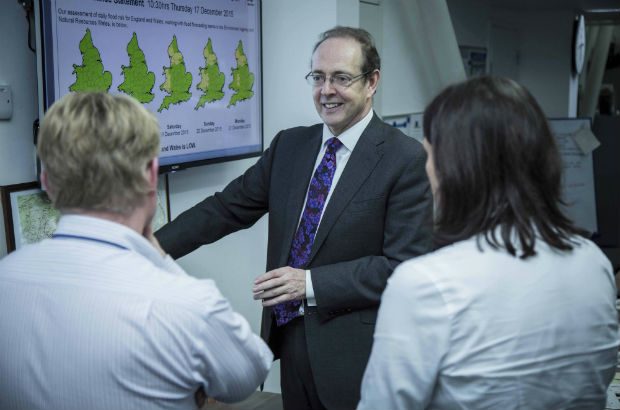
Chief Executive Sir James Bevan sets out the Environment Agency’s view on Defra’s consultation on the Draft Environmental Principles Policy Statement, which closed yesterday after a 12-week consultation period.
The right principles for a greener world
The publication of the government’s draft environmental principles policy statement is a key step in setting out a new framework for environmental decision-making and one that we welcome.
The Environment Agency strongly supports the government’s ambition to place environmental considerations at the heart of policy-making in order to protect and enhance our environment. We would like to see the statement used at the forefront of policy-making to guide key decisions and maximise environmental benefits.
Whilst the ambition is good, we believe there are some areas where the statement could be strengthened to help bring these ambitions to fruition. These include a better balance (proportionality) between socio-economic and environment factors, examples to help guide policy-makers through the process, and a requirement for record keeping.
The Principles
The Environment Bill lists the five key environmental principles ministers will need to consider during government policy-making: the principles of integration, prevention, polluter pays, rectification at source, and the precautionary principle. These principles have formed part of Treaties, International Agreements and domestic law in various forms for many years. They are the right principles and we welcome their inclusion in the legislation.
We welcome the fact that ministers will also have a policy statement to guide their thinking, because how these principles are applied (the subject of Defra’s consultation) is just as important as the principles themselves. The statement will be key to how we put the environment at the heart of future policy-making at a time when we are recovering from Covid-19, charting a new path now that we have left the EU, and looking to address the climate and ecological emergencies. These are cross-government challenges, so it is good that all government ministers - not just those in Defra - will need to take account of these principles.
Proportionality
We agree that the principles need to be applied proportionately. But we should recognise that it is still easier to calculate the cost of regulation than it is to calculate the benefit of environmental action. The recently published Dasgupta Review on The Economics of Biodiversity calls for changes in how we think, act and measure economic success to protect and enhance our prosperity and the natural world. Without a true valuation of the environment, the balance risks favouring social and economic factors, meaning that the principles may be less likely to be applied in a way that ensures environmental protection in the longer term.
It is important that the application of environmental principles is not seen as a burden to development. It presents an opportunity to support green growth and innovation. For example, when the EA regulates industry and applies the prevention, rectification at source and polluter pays principles, this has led to innovation and the implementation of new technologies in industry sectors, such as hydrogen trials in the cement sector and heat exchangers in the intensive farming sector and hence more growth and new jobs.
Addition of examples
Providing extra guidance and examples of how the principles have been used in policy-making will help guide future policy-makers to reach the right decisions, and will introduce consistency.
Record keeping
The public and other third parties will want to know that ministers have had due regard to the policy statement in their decision-making. The statement should therefore require departments to keep records that provide an audit trail of decision-making. This will help improve transparency, accountability and the quality of decisions.
Conclusion
The effective application of these principles in policy-making can help deliver our long term goals: a nation resilient to climate change; healthy air, land and water; green growth; and a sustainable future. The Environment Agency will do all we can to help secure those outcomes.

2 comments
Comment by Julian Jones posted on
Thank you - this is welcomed as it presages profound change.
Defra will have to dig deep to determine these changes, because unfortunately past policy processes (and commercial interests) have substantially led academia down many 'blind alleys' - it is within literally the 'grass roots' that the innovation has already been done; and can be fully scoped within criteria that protect the public interest with existing 'best least cost' technologies.
In terms of the water & farming sectors this is primarily about carbon - largely as humus, naturally sequestrated from the atmosphere and will enable a major increase in contribution to GDP from these sectors (as we move from environmentally exploitive technologies to the regenerative).
Comment by Mark Hickingbotham posted on
You are not fit for purpose,you have consistently failed to prosecute "big business "and allowed your fellow politicians Sir James to overturn policy with respect to polluting this country.
The rivers are dying and will contribute to the death of the oceans,this is another "long term" policy that you will not see to conclusion.